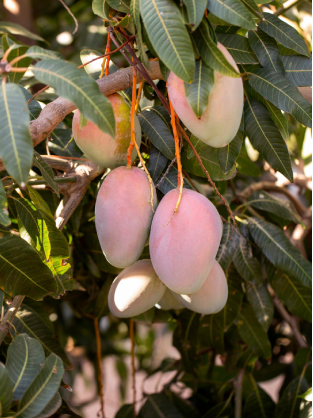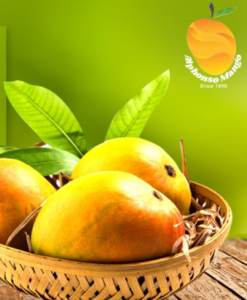Organic mango production presents several challenges compared to conventional methods, primarily due to the following reasons:
Pest and Disease Management: Organic mango production restricts the use of synthetic pesticides and chemicals. Controlling pests and diseases solely through organic methods such as natural predators, crop rotation, and organic sprays can be less effective and more labor-intensive.
Soil Fertility and Nutrient Management: Organic mango farming relies on natural methods to maintain soil fertility, such as composting, cover cropping, and crop rotation. Balancing soil nutrients and ensuring adequate fertility without synthetic fertilizers requires careful planning and monitoring.
Weed Control: Organic mango farms avoid synthetic herbicides, relying instead on mechanical cultivation, mulching, and hand weeding. This labor-intensive process can be challenging and costly, especially in large orchards.
Certification and Compliance: Obtaining and maintaining organic certification involves rigorous standards and regular inspections. Farmers must adhere to strict guidelines regarding inputs, practices, and record-keeping, adding complexity and administrative burden.
Yield and Production Costs: Organic farming practices often result in lower yields initially compared to conventional methods due to the challenges in pest control, nutrient management, and weed control. This can impact profitability and increase production costs.
Market Demand and Price Premiums: While there is a growing demand for organic mangoes, securing premium prices to offset higher production costs can be uncertain. Market fluctuations and consumer preferences play a significant role in the economic viability of organic mango production.
Climate and Weather Vulnerabilities: Organic mango farms may be more vulnerable to climate variability and extreme weather events. Without chemical interventions, managing pest outbreaks or mitigating weather-related damage can be more challenging.
Transition Period: Converting a mango orchard from conventional to organic practices involves a transition period, during which farmers may experience decreased yields and increased costs without immediate organic premium prices.
Despite these challenges, organic mango production offers benefits such as reduced environmental impact, improved soil health, and meeting the growing consumer demand for organic products. Overcoming these obstacles requires dedication, expertise in organic farming techniques, and ongoing research and innovation in sustainable agriculture practices.





